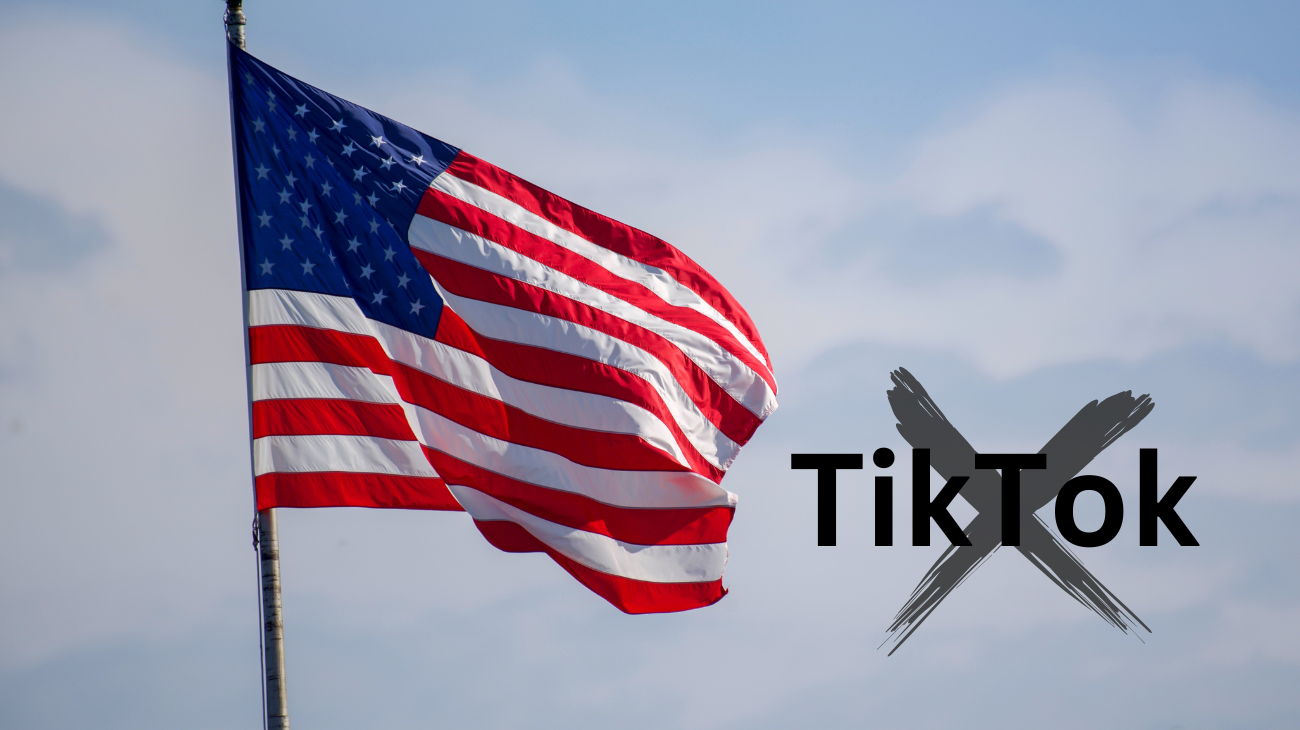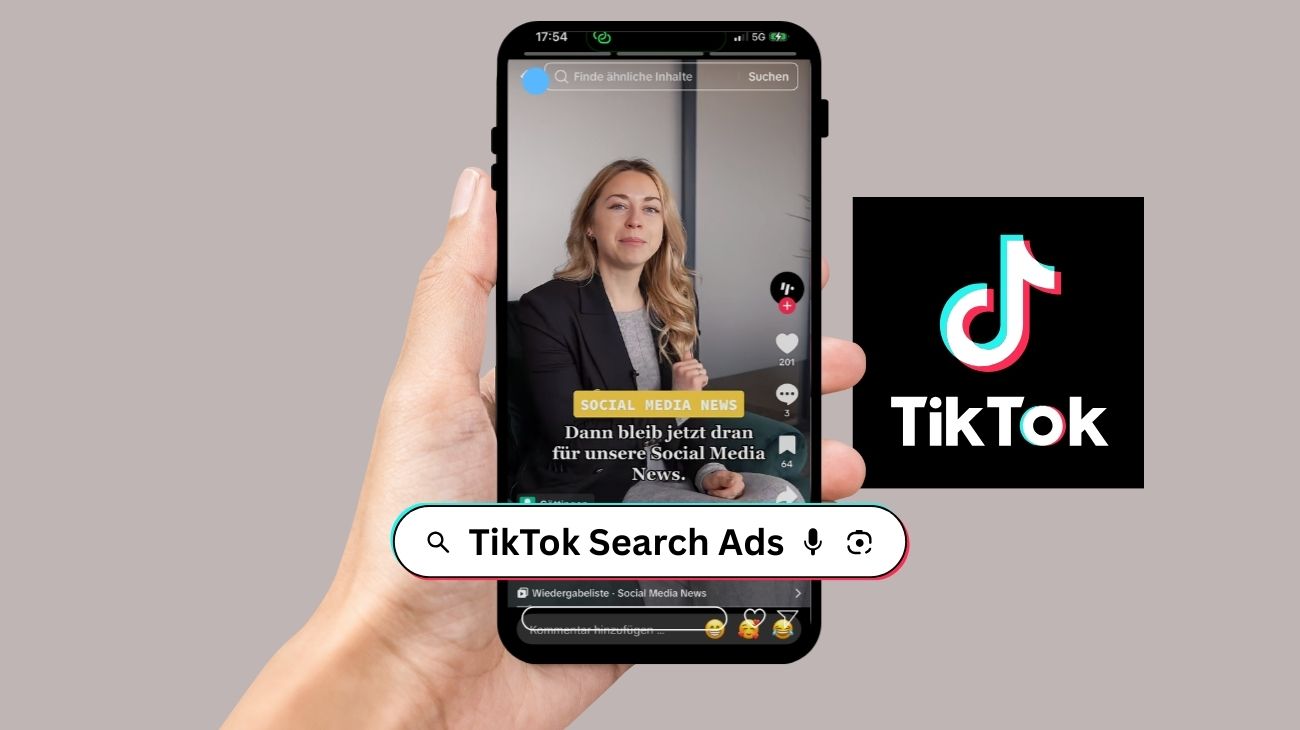What happens if the USA bans TikTok?

Do you live and breathe social media? New clips provide you with fresh inspiration every day. But what happens if this creative source suddenly dries up? A TikTok ban in the US could do just that. Let’s take a look at the far-reaching consequences such a move could have. And not just in America, but also here in Germany and throughout Europe. What would this mean for social media in Germany? Is it the end of virality?
Background and political conditions
In recent years, TikTok has developed from a relatively inconspicuous short video app into a global phenomenon. With billions of downloads and millions of active users worldwide, the platform is revolutionising the social media market and significantly influencing social media trends. In the USA and Europe in particular, TikTok has changed the way viral content is created and spread. For many creators, influencers and brands, TikTok is the central channel for organically building reach and maintaining a close connection to the community.
Political tensions and security concerns
However, behind this dazzling success lies a tense political debate. Concerns about data security and national security have been growing in the USA for some time. Particularly in the context of the US-China conflict, there has been criticism that sensitive user data could be passed on to foreign authorities. It is no longer just a question of user behaviour, but is also closely linked to geopolitical interests and global competition. In other words, digital power.
What are the effects of a TikTok ban in the USA?
Technical and operative consequences
If such a ban were to come into force, TikTok would have to disappear from the official app stores of Apple and Google. This would have the following consequences:
- Lack of future updates: Without regular security patches and functional enhancements, the app will become unusable in the long term and susceptible to security vulnerabilities.
- Drastic drop in user numbers: Forecasts suggest that active user numbers could drop by 40-60% in the first 48 hours.
- Transition phase for users: Existing users could continue to use the app for the time being, but it would gradually lose stability and become increasingly insecure.
Effects on content creators, influencers and brands
For you as a content creator, influencer or brand that has previously relied heavily on TikTok, the consequences would be serious. The platform was the place where you built up your organic reach and cultivated an intensive community. A ban would result in some losses:
- Loss of organic reach and community loyalty: TikTok made it possible for even unknown creators to become viral stars overnight. By discontinuing the platform, you would lose access to this large, active target group. The regular, authentic interactions that have made your community strong and engaged could suddenly become fragile. The direct line to your followers would be at stake.
- Financial losses and loss of proven monetisation models: Many influencers and creators build their income based on TikTok, be it through the Creator Fund, exclusive brand collaborations or sponsored campaigns. An abrupt ban would paralyse these sources of income and lead to significant financial losses.
- Challenges for brands and companies::
Brands that use TikTok as a dynamic channel for targeted influencer marketing would also have to realign their entire digital communication strategy. Planned campaigns and promotions that were developed specifically for TikTok would have to be redesigned or postponed at short notice. In addition, there is increased pressure to invest in alternative channels, which not only involves additional costs but also harbours the risk that the success is not immediately comparable.
Economic consequences
The discontinuation of TikTok could significantly shake up the entire advertising market in the USA. Experts estimate that billions in advertising revenue would be lost as a result of such a ban. Influencers who generate their income almost exclusively via TikTok would face a massive financial slump.
Geopolitical signalling
Banning TikTok would be more than just a technical measure, it would be a strong political statement. The move would further fuel tensions in the US-China conflict and could have far-reaching international consequences:
- Stricter regulations worldwide:
Countries, particularly in Europe, could begin to tighten their data protection standards and digital sovereignty measures. - Renegotiation of digital power:
Such a TikTok ban could lead to a long-term realignment in global competition between leading technology powers, with an increased focus on digital transformation and the control of critical infrastructure. - Signalling effect for global markets:
Such a drastic step in the US could also lead to similar measures in other countries, permanently changing the entire digital landscape.
What impact would the TikTok ban have on Europe and Germany?
Even if the ban is decided in the USA, the waves will not go unnoticed far across the Atlantic. In Europe, and especially in Germany, TikTok has long been an integral part of many people’s everyday lives.
European legal context
TikTok is already being criticised in Europe. Some authorities and companies have restricted the use of the app on company mobile phones in order to protect sensitive data. The entry into force of the EU’s Digital Services Act (DSA) reinforces these trends, as it provides for stricter data security measures. If a ban is introduced in the USA, it is likely that the European regulatory authorities will also take even stricter action to ensure digital sovereignty.
Changes in user behaviour and the advertising market
For the German market, a ban on TikTok could be a real wake-up call. Users who rely on TikTok on a daily basis would have to find alternative platforms in the short term, which could lead to a rapid shift in the social media mix. Companies and brands would be faced with the challenge of redefining their advertising strategies in order to close the resulting gap. A switch to channels such as Instagram Reels or YouTube Shorts will then become almost inevitable.
Are we facing a shift to a multi-platform strategy?
An abrupt end to TikTok would shake the entire creator economy to the core. Many content creators have built their careers and success on this platform. The sudden loss of their usual reach could not only lead to considerable financial losses in the short term, but also change the entire production and monetisation model in the long term.
This situation illustrates how risky a one-sided dependence on a single platform can be. The move towards a multi-platform strategy is therefore essential:
- Diversify your content:
Instead of relying solely on TikTok, you should also publish your content on other channels such as Instagram Reels, YouTube Shorts and Snapchat Spotlight. This will spread your audience and make you less dependent on sudden market shifts. - Direct community cultivation:
Establishing your own direct connection to your followers, for example via your own website, regular email newsletters or communication channels such as Discord and Telegram, allows you to act independently of the changeable algorithms of large social media services. - Innovation as a success factor:
Use change as an opportunity to develop new formats. Live streams, interactive Q&A sessions and exclusive behind-the-scenes insights can not only strengthen your bond with your community, but also appeal to new target groups.
Every change holds opportunities
Despite all the challenges that a sudden collapse of TikTok would entail, this situation also opens up unique opportunities. Especially in times when a market-dominating platform suddenly disappears, there is room for innovation and a reorientation that can offer more stable and diverse opportunities in the long term.
1. New ways to increase reach and community loyalty
Without being dependent on a single channel, you have the opportunity to diversify your audience and build direct, lasting relationships with your followers. By using alternative platforms such as Instagram Reels, YouTube Shorts and Snapchat Spotlight, you can not only reach new target groups, but also build even closer ties with your existing audience. By establishing your own channels, such as your own website or regular newsletters, you can create a direct line to your community that is independent of the TikTok platform.
2. Innovative monetisation and creative freedom
The loss of proven revenue streams like the TikTok Creator Fund is forcing you to develop new monetisation strategies. This is the ideal time to explore alternative revenue streams, be it through cross-platform collaborations, your own digital products or exclusive content only available through direct channels. The competition for users’ attention could also lead to a creative explosion, resulting in new formats and innovative advertising approaches. In the long term, this could result in a robust and diversified business model that is less susceptible to sudden market changes.
3. Opportunities for brands and businesses
A radical change also offers opportunities for you as a brand. A ban on TikTok could lead to the entire digital advertising market being restructured. Companies that are forced to broaden their campaigns often discover new, more target group-orientated approaches. The shift towards a multi-platform strategy can not only lead to a broader brand presence, but also stimulate competition, ultimately leading to more innovative and effective marketing campaigns. In addition, this shift could increase pressure to improve data protection and security, which would strengthen consumer trust in digital offerings in the long term.
All in all
A TikTok ban may seem like a bitter setback at first glance, but it also offers the opportunity to reposition yourself, diversify your own digital footprint and unleash creative and economic potential. Those who use this change as an impetus for innovation and strategic reorientation can not only overcome the challenges, but also benefit from the opportunities that arise in the long term.









 Sign up
Sign up 